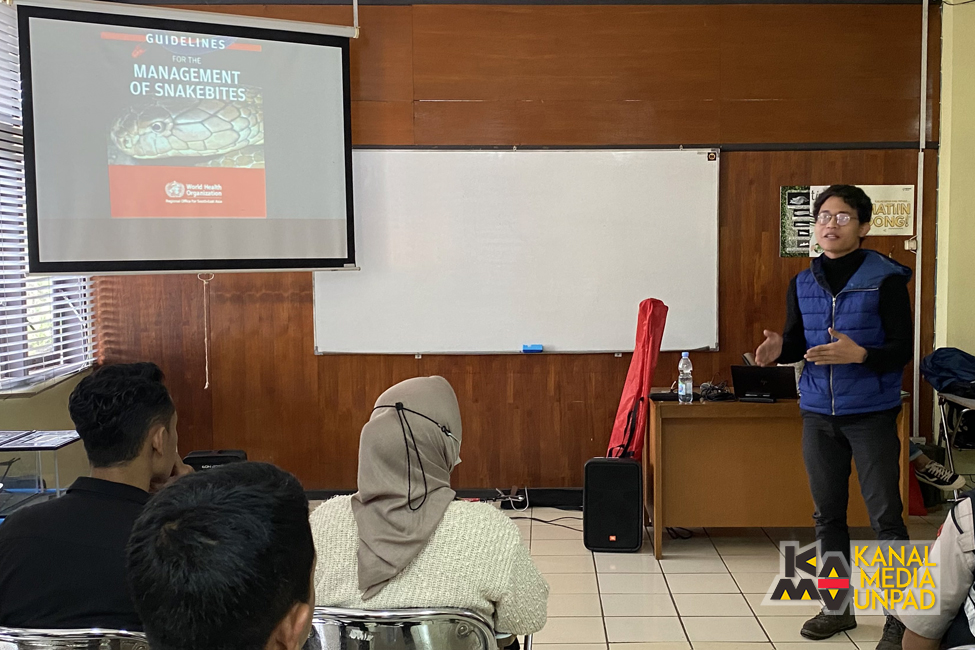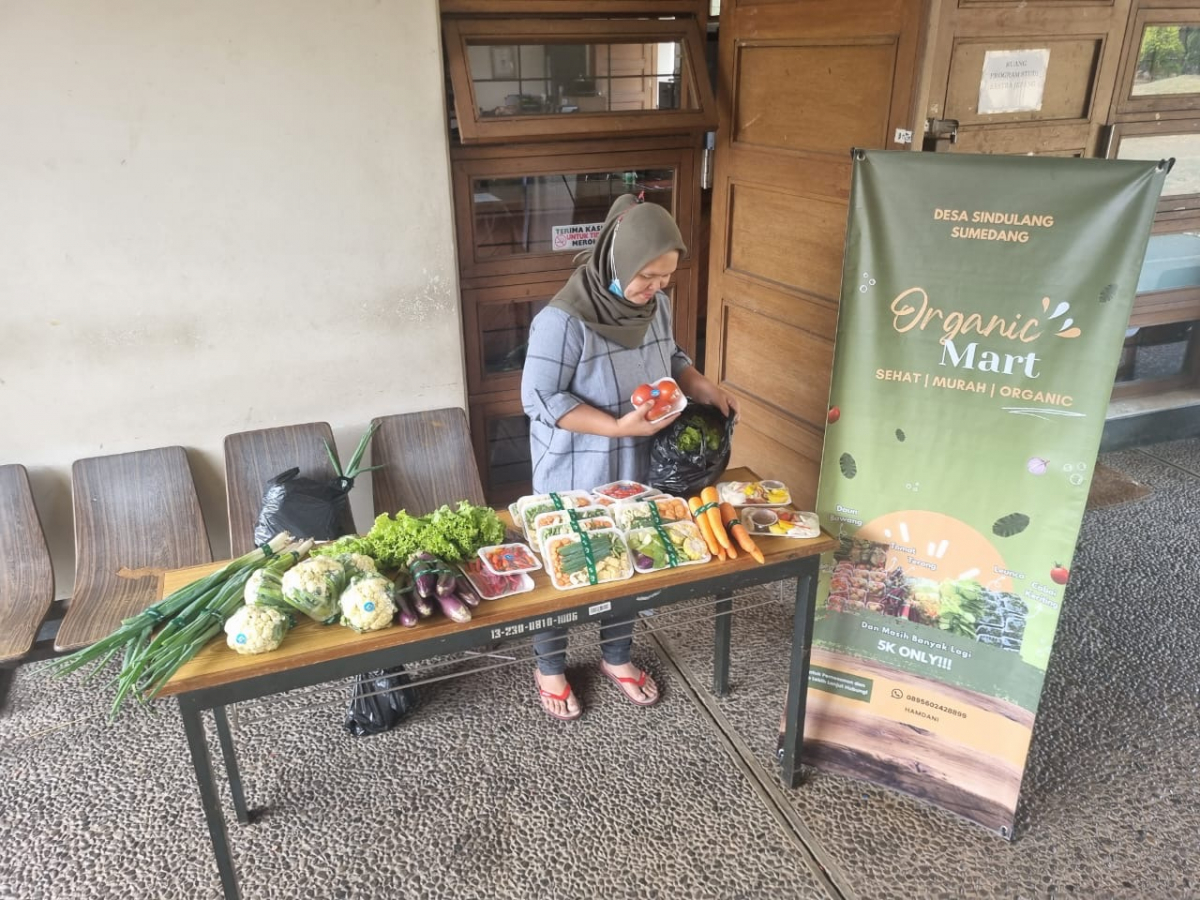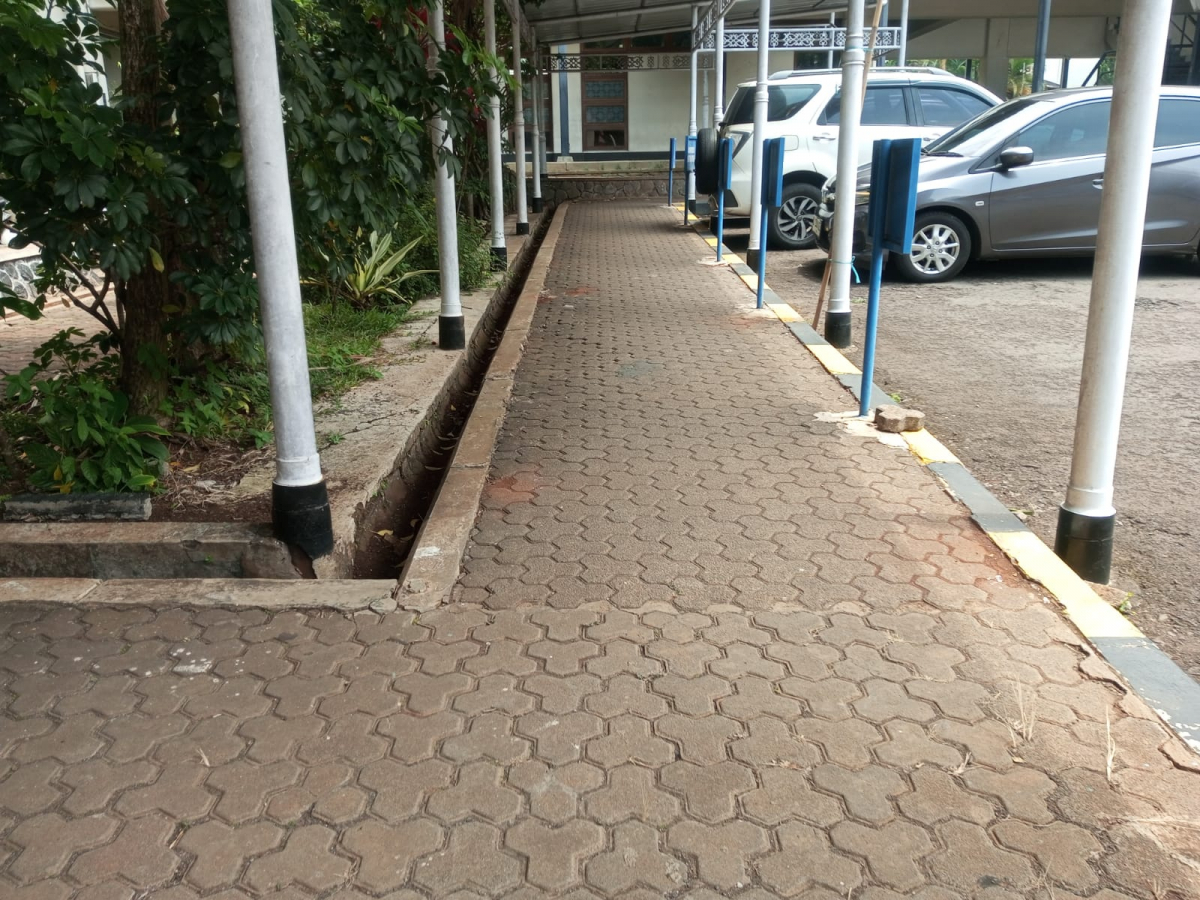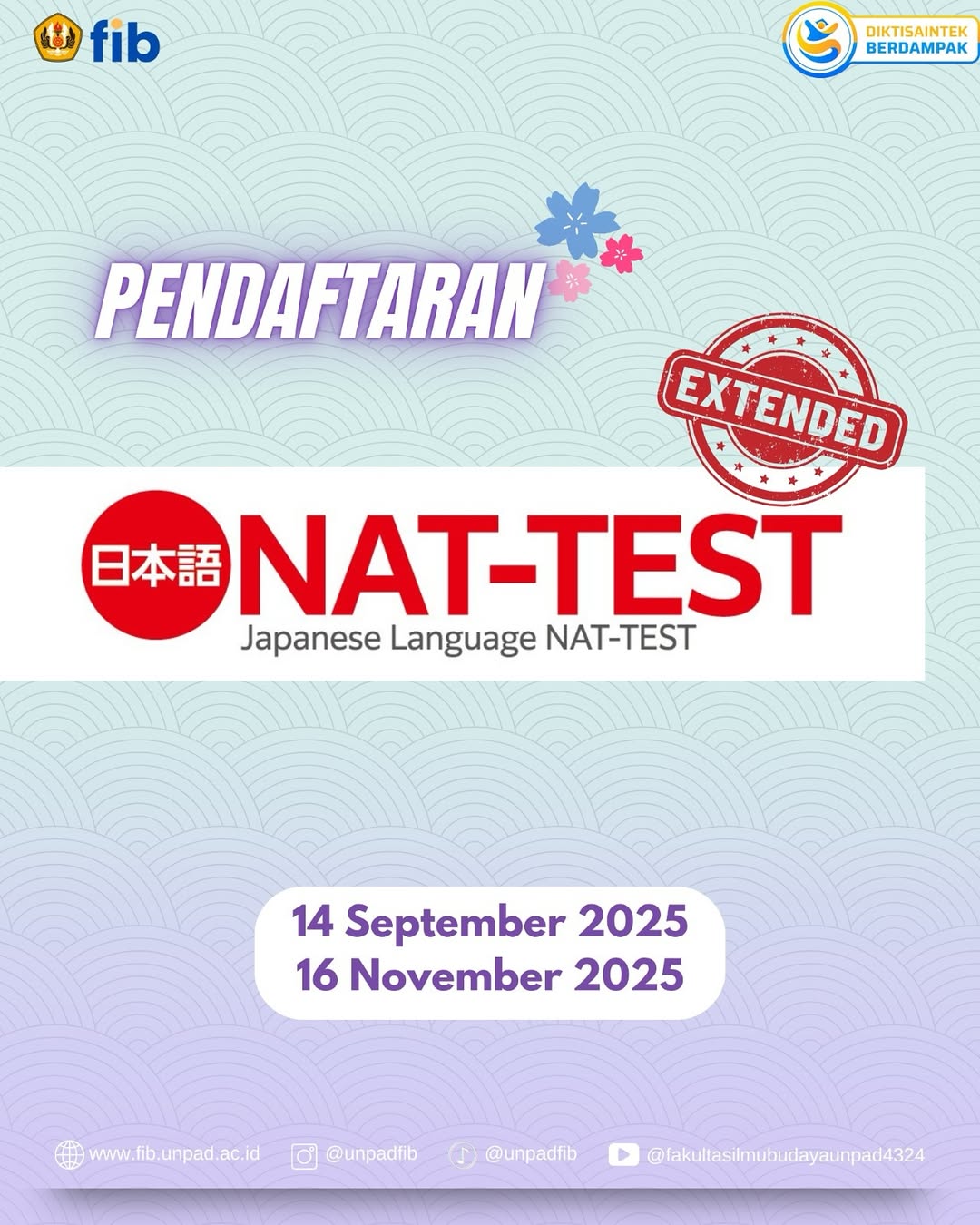
Unpad Center for Environmental Communication Studies Conducts Training for Snake Handling
Jatinangor, February 26, 2023 – The Center for Environmental Communication Studies, Faculty of Communication Sciences, Universitas Padjadjaran (Fikom Unpad) together with the Sioux Indonesia Foundation organized “Snake Handling Training” which was attended by a number of students and campus security personnel at the Fikom Unpad campus, Jatinangor, on Saturday (25/03). This activity was supported by various parties and faculties, one of which was the Faculty of Cultural Sciences (FIB).
The Head of the Center for Environmental Communication Studies of Fikom Unpad, Dr. Uud Wahyudin, said that the target participants in this activity were security personnel, with the hope that the security team would not only solely focus on carrying out community security activities on campus, but also handle potentially dangerous animals, especially snakes.
Fikom Unpad lecturer and animal activist, Dr. Herlina Agustin, explained that many people are usually confused about what to do first when they encounter a snake. Therefore, this training was held to address similar situations and ensure the safety of the Unpad community.
She explains that snakes are like “neighbors that can be spotted anywhere”. Sometimes many people do not know how to deal with snakes, so they make harsh decisions by killing them.
When encountering a snake, the first person people usually contact or turn to is the security guard. Therefore, this training program is aimed at educating the security guards so that they are able to professionally handle the snakes in order to protect the public and the animals themselves without having to kill them.
He also added that in cases when a snake has attacked you, the first step is to calm down and immediately clean yourself with running water while making sure to do three important things, namely pressing, holding, and raising the bitten body part to prevent it from being contaminated by bacteria. After that, you should immediately treat the injured body part so that it does not lead to infection.
Afterwards, the snake will either be returned to its natural habitat or in some cases, be kept in the laboratory as objects of future student research.
“We hope that we as humans can coexist with animals so that the existing ecosystem is well-maintained,” Herlina concluded.
Writer: Yohanes William Ivakdalam
Translator: Dhia Anaulva Putri





